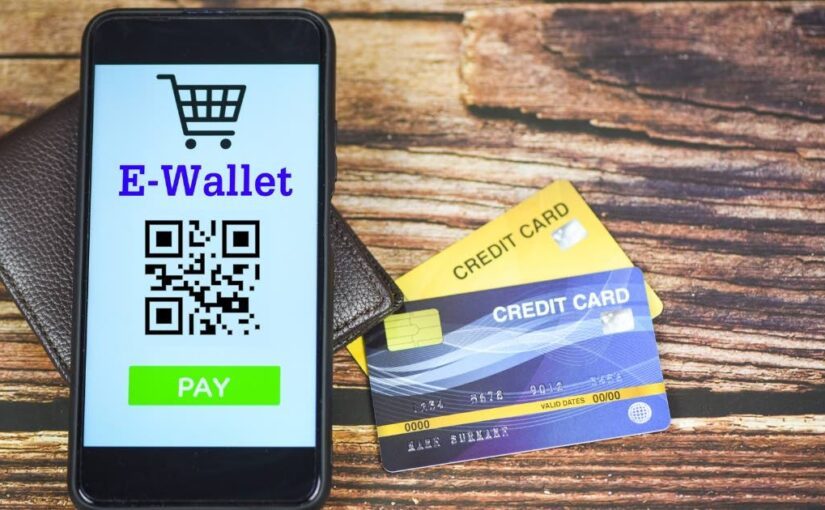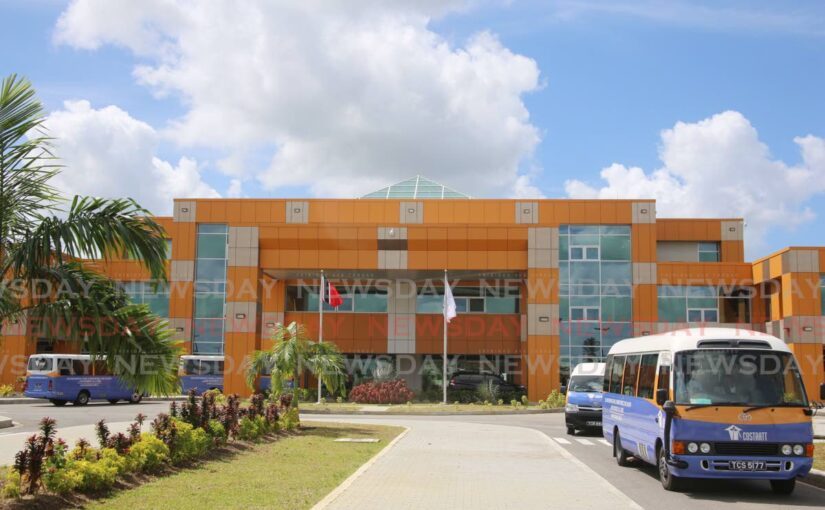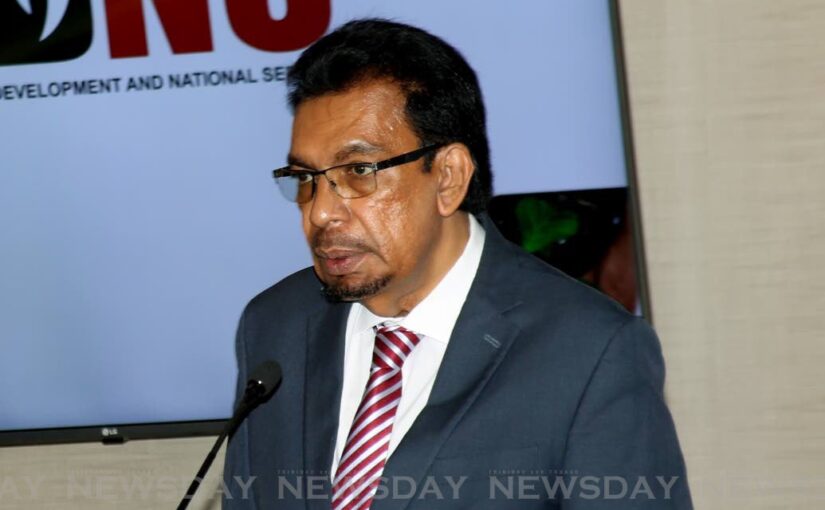THE College of Science, Technology and Applied Arts of TT (Costaatt) will transition to a cashless institution by June 30. A media release sent on...
Vous n'êtes pas connecté
- English
- Français
- عربي
- Español
- Deutsch
- Português
- русский язык
- Català
- Italiano
- Nederlands, Vlaams
- Norsk
- فارسی
- বাংলা
- اردو
- Azərbaycan dili
- Bahasa Indonesia
- Հայերեն
- Ελληνικά
- Bosanski jezik
- українська мова
- Íslenska
- Türkmen, Түркмен
- Türkçe
- Shqip
- Eesti keel
- magyar
- Қазақ тілі
- Kalaallisut ; kalaallit oqaasii
- Lietuvių kalba
- Latviešu valoda
- македонски јазик
- Монгол
- Bahasa Melayu ; بهاس ملايو
- ဗမာစာ
- Slovenščina
- тоҷикӣ ; toğikī ; تاجیکی
- ไทย
- O'zbek ; Ўзбек ; أۇزبېك
- Tiếng Việt
- ភាសាខ្មែរ
- རྫོང་ཁ
- Soomaaliga ; af Soomaali
Rubriques :
 Maroc - NEWSDAY.CO.TT - A la Une - 09/Jan 06:42
Maroc - NEWSDAY.CO.TT - A la Une - 09/Jan 06:42
TT financial inclusion report: Digital banking can bridge gaps
Globally, an estimated 57 per cent of banking customers use their mobile devices to make transactions and access banking services. This is a result of recent technological advances that have changed the banking world. Instead of opening more physical branches, banks have shifted their focus to building and enhancing their online platforms especially as more people get cell phone and internet access. Some banks are even closing branches and encouraging customers to use online banking that provides them with 24/7 access to their money. This has resulted in a rise of mobile payment systems like M-Pesa, one of Africa's most successful mobile money services and the region's largest FinTech (Financial technology) platform. In India, it is now possible to pay for almost anything using a mobile app or QR code as the Unified Payments Interface (UPI) has been fully implemented throughout the country. In TT the Central Bank (CBTT) is putting in place a mobile payments system that works like India's (UPI). CBTT expects a national fast payments system would benefit everyone, making it fast, simple and safe for people to send money using their mobile devices. The system also has the potential to bridge the financial access gaps that still exist. In 2023 it was found that only 75 per cent of people in TT have bank accounts, down from the 81 per cent recorded in 2018. This, according to the TT International Financial Centre (TTIFC) National Financial Inclusion Survey Report (2023), is a result of several factors. Many people lack the necessary documents to open a bank account and are worried about the cost of bank fees. And although almost half of the population lives within 15 minutes of a bank or ATM, a high level of financial exclusion was seen in southern municipalities, with 33 per cent recorded in San Fernando and 30 per cent in Penal/Debe. Overall cash remains king, with 63 per cent of all financial transactions nationwide being done in cash. However, a new data report shows that as of September 2024 there were two million site visits to all of TT’s online banking platforms. First Citizens Bank garnered around 34 per cent of all visits and Republic Bank, JMMB, and Scotiabank had between 18 per cent and 21 per cent. Despite the heightened activity, customers still have reservations about online platforms. TTIFC’s National Financial Inclusion Survey 2023's qualitative focus groups found people were worried about the switch to digital banking, expressing concerns about issues like security and personal data violations. A worldwide poll by Ernst and Young (EY) in 2023 found cyber crime to be the biggest threat to the world's banks. CBTT says banks and other financial institutions in TT that offer digital banking services must follow the law to protect customers, ensure compliance and keep information safe. The Banking Act governs what banks in TT can and cannot do, and includes regulations about their licensing, control, and compliance. As the main financial regulator, the CBTT instructs banks to follow laws and strict cyber-security rules to keep digital banking services safe from cyber dangers. This means using strong encryption, secure login methods and regular checks for security as banks follow the legislation put in place to protect customers. Anti-money laundering (AML) and counter-terrorism financing (CTF) regulations are required to be set up by financial institutions. These regulations require banks to guide customers, keep an eye on transactions and report any suspicious transactions. Consumer protection regulations require banks to handle customer complaints and give clear details about their digital banking services such as fees and terms and conditions. The Data Protection Act requires banks to protect the privacy and security of customer information that they get from digital banking systems. This means putting in place systems to stop data leaks and unauthorised access. In addition, the CBTT issues guidelines and circulars on a regular basis which explain the expected standards and practices for digital banking. These cover different aspects like risk management, customer authentication and technology needs. The government of TT also plays a crucial role in supporting the development and adaptation of digital financial products and services. The TTIFC works with different ministries and agencies, including the Treasury Division, to introduce new methods like the Housing Development Corporation’s (HDC) omnichannel payment platform, which allows residents to pay easily through cashiers and online debit and credit cards. The Judiciary is also widening its Court Pay platform to include the National Lottery and Control Board’s (NLCB) network of more than 1,700 cashiers. This will make it easier for people to pay for any court service. Additionally, the growth of fintech companies has created new products like mobile wallets. Locally, five fintech companies were registered under the Electronic Money Issuer Order 2020. These are Paywise, Pesh Money, My Cash, Widit and WamNow, with the first two providing mobile wallets. It is expected that there will be more fintechs coming on board to offer customers more options in addition to digital services offered by banks. The post TT financial inclusion report: Digital banking can bridge gaps appeared first on Trinidad and Tobago Newsday.
Articles similaires
Exploring SME financing: Key trends, insights
BRIAN BENOIT SMALL and medium-sized enterprises (SMEs) play a vital role in driving economic growth, yet many face significant challenges when...
Brussels Hold’em: European Cards Against Trumpian Coercion – Analysis
By Tobias Gehrke At the card table “The European Union”, posted Donald Trump on his Truth Social account on March 13th, is “one of the...
‘Love of money is root of all evil and banks must fight that evil’ – Association of Banks president
The Ghana Association of Banks president, Kwamina Asomaning, has made a strong case for heightened ethical training in the banking sector, stressing...
‘Love of money is root of all evil and banks must fight that evil’ – Association of Banks president
The Ghana Association of Banks president, Kwamina Asomaning, has made a strong case for heightened ethical training in the banking sector, stressing...
Virtual Bank Cards in Dollars Available in Africa: What to Choose
The people of Africa have long faced difficulties in accessing international financial instruments. Restrictions imposed by local banks and the high...
TTIFC launches new e-commerce platform for farmers
TO facilitate the modernisation of agricultural trade, the Trinidad and Tobago Financial Centre (TTIFC) has launched AgriConnect – an e-commerce...
Unlocking Africa’s Future: The Case for Digital Public Infrastructure
Imagine a world where every citizen can access government services with ease, small businesses can expand into new markets, and women have equal...
Unlocking Africa’s Future: The Case for Digital Public Infrastructure
Imagine a world where every citizen can access government services with ease, small businesses can expand into new markets, and women have equal...
Head of Operations (Fintech Industry)
Our client specializes in providing trusted and transparent money transfer services, enabling customers to save money on their international...
Les derniers communiqués
-
Aucun élément






